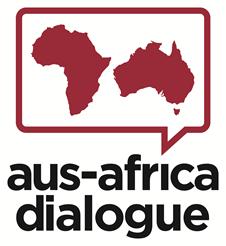 Earlier this month, The Economist carried a front-page story on ‘Aspiring Africa’ with the tag-line: ‘The world’s fastest growing continent’. The article praised the significant progress that has occurred in Africa over the last decade, highlighting the continent’s increased stability, higher number of democratic states, better health standards and flourishing economy.
Earlier this month, The Economist carried a front-page story on ‘Aspiring Africa’ with the tag-line: ‘The world’s fastest growing continent’. The article praised the significant progress that has occurred in Africa over the last decade, highlighting the continent’s increased stability, higher number of democratic states, better health standards and flourishing economy.
We seldom hear good news stories from Africa, but the reality is that Africa really is the world’s fastest growing continent right now: GDP is expected to rise to an average of 6% a year, foreign direct investment in Africa has tripled over the last decade, and consumer spending will almost double over the next ten years. By 2015, 100 million Africans will earn incomes greater than $3000 (the same income as India’s middle class today). Indeed, Africa is becoming more of a success story, in contrast to how it’s been depicted so often in the past, and Australia has much to benefit from and contribute to this aspiring continent.
While Africa rarely features on the Australian strategic or political radar, the links between Africa and Australia are growing. Australia’s economic stake in the continent is substantial and Africa’s strategic importance in the world is growing. Our common outlook on governance in the Indian Ocean will inevitably draw Australia and Africa closer. So a deeper effort is needed on our part to understand Africa more thoroughly and to identify opportunities for enhanced cooperation. With this in mind, ASPI, in partnership with The Brenthurst Foundation of South Africa, are pioneering a senior leadership dialogue of Australian and African leaders. Known as the ‘Aus–Africa Dialogue’, this idea was first raised during an ASPI–Brenthurst Foundation Conference in Zambia in mid-2012, which also saw the launch of a special ASPI–Brenthurst report, ‘Fuelling the Dragon: natural resources and China’s development’. The conference was attended by Parliamentary Secretary for Defence Senator David Feeney, Deputy Leader of the Opposition and Shadow Foreign Minister Julie Bishop and a number of senior federal government officials and private sector representatives. The proposal received further support, including from Kevin Rudd and Ms Bishop, at the Africa Down Under Conference in Perth in August 2012.
At a recent private ASPI–Brenthurst function, an Associate of The Brenthurst Foundation and Co-founder and General Manager of TransAfrika Resources, Congo born and raised Thomas Nziratimana, outlined his vision for greater Australian–African engagement. Speaking on the concept of an Australia–Africa dialogue, Nziratimana described the initiative as ‘an idea of utmost importance to the future of my continent and, I believe, also important to your continent’.
Some of his other comments are well-worth sharing here:
One of the main reasons why there is more optimism in Africa today is because Africa is still riding high on the global commodity boom. The boom is being driven by the high demand from China for Africa’s resources, which has, in turn, played such a significant part in sustaining high economic growth rates in Africa’s resource-producing countries and regions. This is where Australia comes in, and why I think the Africa–Australia dialogue is such an important initiative.
For all the political improvements in Africa, most of us are still doing a poor job of spreading the benefits of the commodity boom across our societies. We have yet to build the kind of strong, accountable institutions that have helped Australia navigate so successfully through the ups and downs of this boom and of previous commodity booms. Nor, sadly, have we made much progress in diversifying our economies.
Some of Africa’s failings are simply down to poor leadership, but in many cases, this has as much to do with lack of exposure—especially to countries like Australia.
I am fully aware that unless African governments improve the way they operate with the private sector, by becoming more efficient, more transparent, more ethical and more engaging, the great potential of the African continent will never be reached.
That is what makes an Africa–Australia dialogue a unique opportunity to share experiences and learn valuable lessons from Australia of how best to harness the immense potential of the African continent.
I couldn’t be happier to witness the rapid growth of Australian interests in Africa because, of the new investors who have arrived over the past ten years or so, I firmly believe that Australia stands out for its unique and specialised expertise in resource management, infrastructure investment, and robust legal and regulatory frameworks.
Australia stands out for the quality of your business practices, the quality of your executives and technicians. These are some of the reasons that I firmly believe that the quality of your engagement with African governments needs to be redefined, enhanced, and strengthened, hence the importance of the central role that the Aus–Africa Dialogue could play.
The Aus–Africa Dialogue will help build the bridge linking the two continents we thought were too wide apart, crossing a sea we thought was too large and windy to cross.
The Aus–Africa Dialogue will help foster a new and much richer appreciation of each other, and I am excited by how much good could flow from it, for both of our peoples. The Aus–Africa Dialogue aims to provide a strategic direction in this growing and important relationship, and we hope it will become an annual event.
The Aus–Africa Dialogue—the first of its kind—will be held this July in Western Australia. For further information, check the ASPI website from May 2013.
Hayley Channer is an analyst at ASPI.

